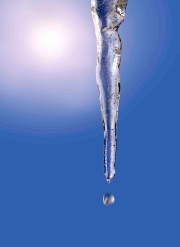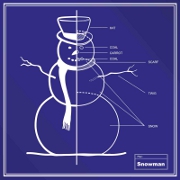A magazine where the digital world meets the real world.
On the web
- Home
- Browse by date
- Browse by topic
- Enter the maze
- Follow our blog
- Follow us on Twitter
- Resources for teachers
- Subscribe
In print
What is cs4fn?
- About us
- Contact us
- Partners
- Privacy and cookies
- Copyright and contributions
- Links to other fun sites
- Complete our questionnaire, give us feedback
Search:
How do I know you are telling the truth?
In recent articles we have been looking at the Science around Illusions and how the results are used by Computer Science. This area of science, like all of science, doesn't have all the correct answers. What science does is to give good answers that fit the current evidence. Of course how you put the evidence together and the conclusions you draw from them may change over time.

The coal and carrot mystery
Suppose you find, in a field, two small pieces of coal and a carrot close together. What happened here? From the evidence you might claim that in fact there had been a snowman in the field, with coal eyes and a carrot nose. The snowman had melted and this was all that was left. Your evidence supports the 'snowman hypothesis', a hypothesis being a posh Greek word for a suggested explanation. Now suppose someone else comes along, they look at the evidence and they come up with the 'two vans hypothesis' that it was caused by a coal truck passing the field and loosing two bits of coal, then a vegetable truck passing by and dropping a carrot. Which hypothesis is correct?
My hypothesis is better than yours!
Suppose now that you check the recent weather and find it was recently snowing there. That could give more clout to the 'snowman hypothesis', but equally well in the winter people need more coal for heat and carrots to make hot soup, so there would be more vans. That means the 'two van hypothesis' could still easily be correct. What's needed is an experiment to find some new evidence to separate the two hypotheses, and see which is better. An experiment is proposed: build a time machine (or create your own Primeval style anomaly) and go back and see what actually happened. That will settle things once and for all. But no! That's rejected: you can't find a police box big enough on the inside. So what next?
Sorry no can do, but how about...
Because of reasons like limitations in technology we can't do exactly the experiment we want so we have to come up with experiments we can do. Back in our field the 'find a truck track' experiment is proposed. If the 'two van hypothesis' is correct then it follows there should be evidence of van tyre tracks near by. An expedition is sent, but to ensure fair play they aren't told what to look for. If they did know they were after tyre tracks that could prejudice them. They might be trying so hard they mistake some other muddy pattern for tyre tracks. The team return with their new evidence. They found tyre tracks on the road just at the side of the field, over the hedge where no one had bothered to look before, and what's more there were bits of coal and carrots all over the place, and a 'beware rough road surface' sign. Result!
Victory is mine, or is it?

The 'two van hypothesis' works. It explains everything. Oh! says the 'snowman hypothesis' camp, that's not right. The kids who built the snowman came in a truck to the fields, and they had extra coal and carrots in their pockets and that fell out when they were getting out of the van shaking because they had been bounced by the bumpy road. At this point you're probably thinking that sounds a bit silly. Of course it could be true that there are untidy, traumatised, snowman building kids in vans, but probably it's more likely that the 'two van hypothesis' is correct. You cant be 100% certain, though. OK so a new experiment why don't we ...
We leave the field at this stage. It's getting late and the two camps are still arguing away, coming up with more experiments, accumulating more data and evidence, following the scientific method.
We are all scientists?
Every illusion explanation we give needs to be considered in the light of the scientific method, as does every scientific result. What's the evidence to support the claim? It is because science is built on an ever-increasing foundation of evidence that it is so powerful and is able to give us our understanding of the world around us today. It may have its limitations, and can never give answers with 100% certainty. After all there may be some missing piece of the puzzle, but it has achieved some wonderful triumphs. But science never rests. You can (and probably do) apply the scientific process constantly in your day to day life; you have a view on things (hypothesis) and are constantly testing these with new evidence from new experiences (experiments). You don't always take things for granted, you ask questions, like scientist do. We can always expect the unexpected.



